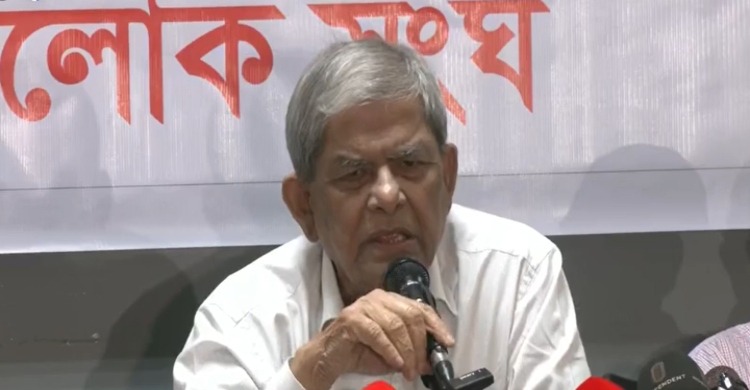Inequalities cannot be removed overnight: Fakhrul


BNP Secretary General Mirza Fakhrul Islam Alamgir on Saturday said inequalities, rooted in Bangladesh’s state structure for decades, cannot be eradicated overnight, though structural reforms are essential.
“Instant solutions to long-standing issues of injustice, corruption, authoritarianism and structural discrimination cannot be expected,” he said while speaking at a seminar at the Jatiya Press Club.
Fakhrul said reforms of the state framework and the electoral process are still at a preliminary stage.
The seminar, titled ‘How Well is Social Protection Secured’, was organised by Arpon Alok Songho. Senior journalist Sohrab Hassan, Ganosamhati Andolon’s Chief Coordinator Zonayed Saki, Nationalist Democratic Movement (NDM) Chairman Bobby Hajjaj, former BNP MP Rehana Akter Ranu and Policy Exchange Chairman Dr M Masrur Reaz spoke at the event as special guests.
Fakhrul said the recent mass uprising has opened a new opportunity for change but cautioned that sustainable reforms require well-defined planning, political sincerity and structural change.
The BNP leader said it is impossible to expect a functional democracy and just society without restructuring the existing state system, which, he said, fosters inequalities and corruption.
He highlighted how bureaucratic centralisation forces citizens, including schoolteachers, to come to Dhaka even for minor issues that could be resolved at district level.
This system, he alleged, is designed to sustain bribery and rent-seeking, extending from recruitment in schools to universities.
Fakhrul insisted that reforming the state structure is inevitable if Bangladesh is to move towards an egalitarian society. “The present system cannot yield justice and fairness, and calls for collective political commitment to ensure lasting change.”
Zonayed Saki said his party seeks to represent working-class demands and criticised successive governments for failing to build even minimum social balance. Class divisions, especially wealth disparity, have grown under policies shaped over the past five decades, resulting in a plundering-based economy, he said.
Bobby Hajjaj criticised both past and present governments for institutional decline in the financial sector.
Referring to the ‘closure of nine non-bank financial institutions’ last week, he said looting in the banking sector did not stop even after Sheikh Hasina’s departure.
He alleged that Bangladesh Bank was aware of irregularities during Hasina’s rule but accountability was absent as officials responsible for oversight were never brought under scrutiny.
